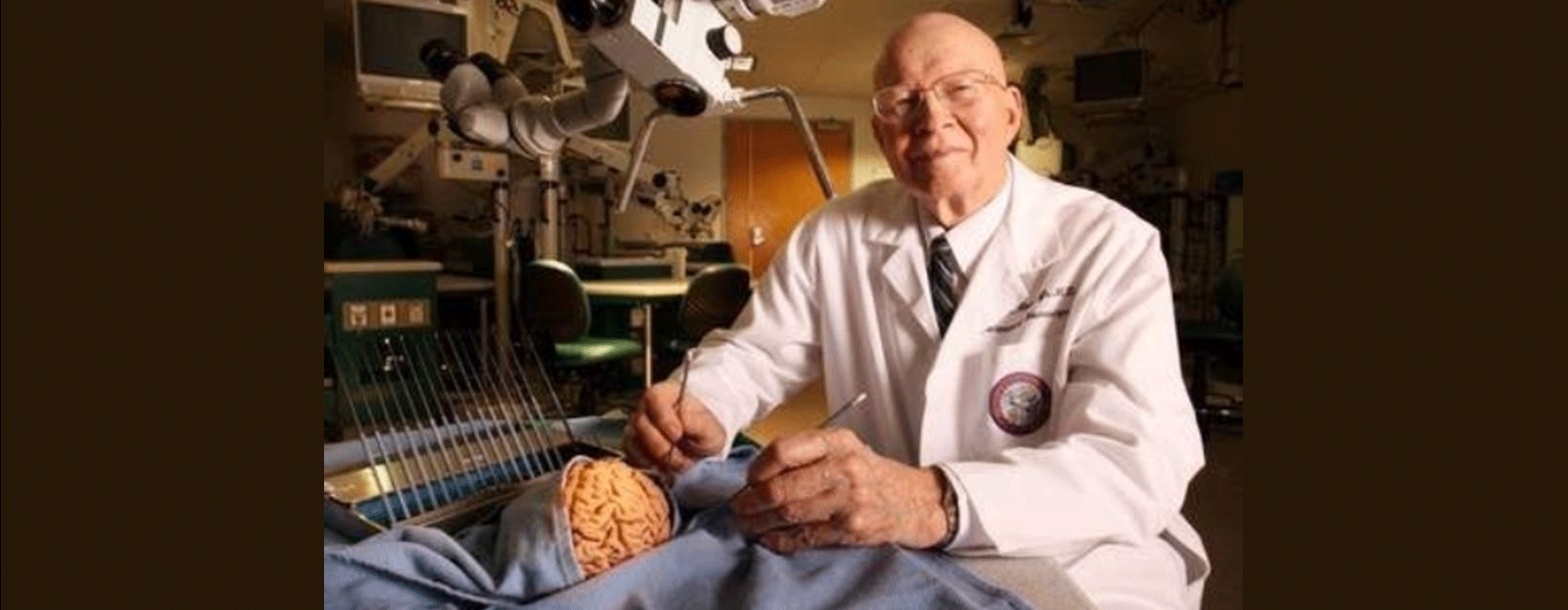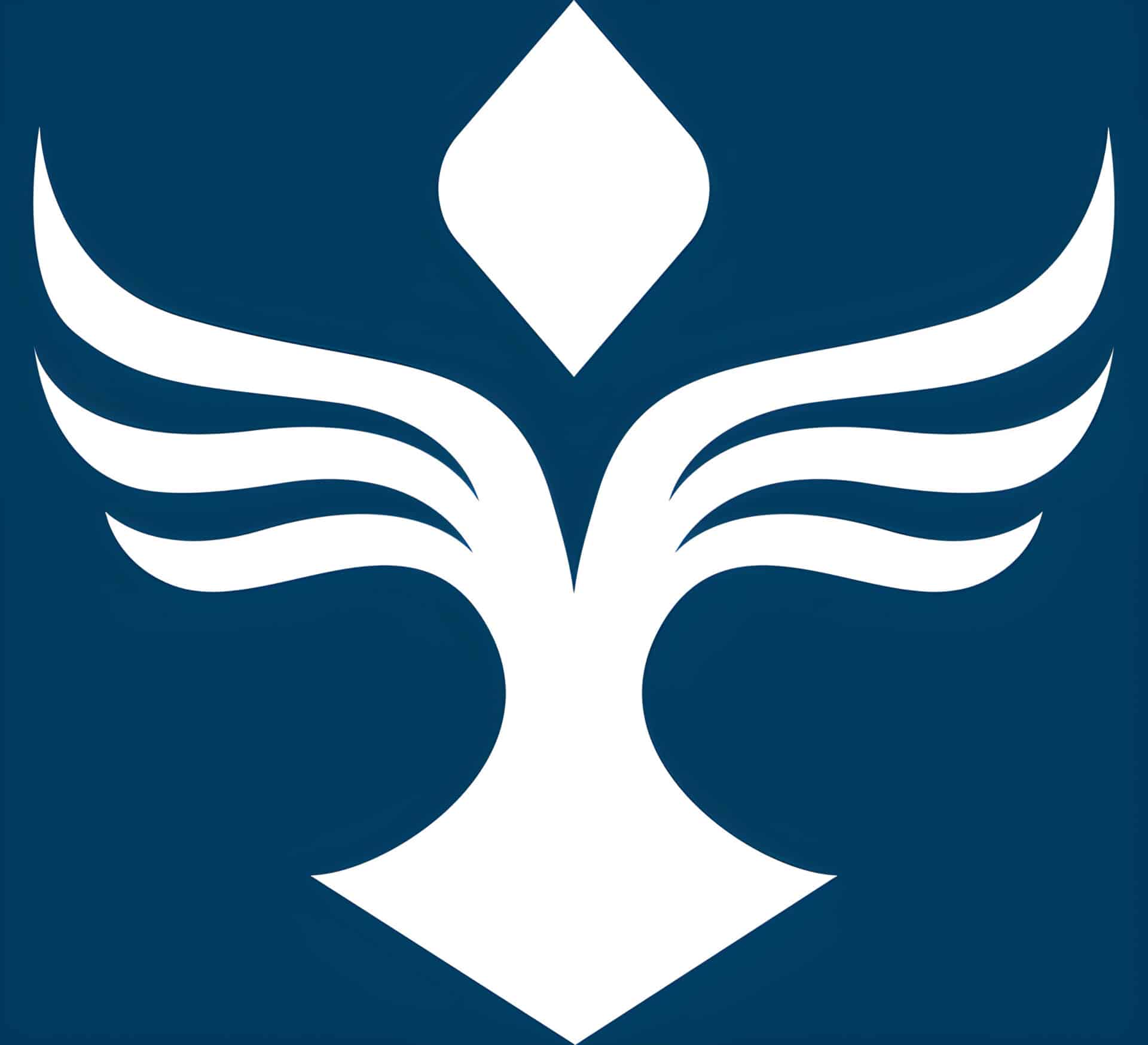Honoring Albert L. Rhoton, Jr., MD

02.27.16
Seattle Science Foundation
Dr. Albert Rhoton
1932-2016
The neurosurgical and neuroanatomical worlds have lost an icon in their fields. The emotion that this loss evokes is similar to what was conjured by Antony as he eulogized Brutus and resonates on this sad occasion:
This was the noblest Roman of them all. His life was gentle, and the elements So mixed in him that Nature might stand up And say to all the world, This was a man. (Julius Caesar, Act V, Scene V, line 68).
Here, rather than detailing his awe-inspiring career, as most obituarists do, Dr. Rhotons own words are used to describe his filed and love, the human brain.
Born in Parvin, Kentucky, Dr. Rhoton recollected that he never dreamed that he would become a neurosurgeon. In fact, he said, My early life was without exposure to physicians or to hospitals, electricity or other modern conveniences. I was unaware that neurosurgery even existed. In college, he first studied chemistry but missing the human element, began to study social work. However, the lack of touch and working with his hands also lead to disappointment in this field. It was following his observation of brain surgery on an animal that he realized his lifes calling-neurosurgery. This interest never waivered as he worked in a neuroscience laboratory during medical school and completed a neuroanatomical fellowship after medical school.
At the University of Florida, he developed what would become a world renowned training center for neurosurgeons. However, he was not sure that his first surgical course held in the training center would be productive but when he walked into the laboratory on the first day, he found,
In the midst of this intense endeavor and amazing quietness, I realized that we had tapped into a great force: the desire of neurosurgeons to improve themselves. Each individual neurosurgeon can acquire new skills so that a new level of performance in the specialty is achieved.
Dr. Rhotons work on microneurosurgical anatomy
In regard to his monumental 2002 publication based on a career of microneurosurgery, Cranial Anatomy and Surgical Approaches, Dr. Rhoton said, It represents a 40-plus-years attempt to gain an understanding of the anatomy and intricacies of the brain with the goal of improving the safety, gentleness, and accuracy of my operations on my patients. As a neurosurgeon, Dr. Rhoton wanted to push back the frontiers with the emerging world of microsurgery. He said, One of my favorite personal goals has been to find images of a single operation performed perfectly, because the inner discipline of striving toward perfection leads to improvement. He was troubled by what he found to be too many neurosurgical procedures with an unacceptable morbidity. For example, he recalled, During my training, I did not see a facial nerve preserved during the surgical removal of an acoustic neuroma.
Dr. Rhoton, over time, discovered,
Microtechniques are now being applied throughout neurosurgery, thus adding a new level of delicacy and gentleness to our specialty. The competence of the whole specialty has been improved, and with this experience has come the realization that neurosurgeons, as a group, are constantly aspiring to and achieving higher levels of performance that are not based on advances in diagnostic equipment and medication but are dependent on inspired individuals striving to improve their surgical skills and knowledge to better serve their patients.

Dr. Rhoton on the brain
The brain is the crown jewel of creation and evolution. (The) brain accounts for the mind, and through the mind, we are lifted from our immediate circumstances to consciousness and given an awareness of ourselves, our universe, our environment, and even the brain itself. The brain is not the seat of the soul, but it is through the brain and mind that we become aware of our souls.
Here, in two handfuls of living tissue, we find an ordered complexity sufficient to preserve the record of a lifetime of the richest human experience and create computers that can store amounts of data that can be comprehended only by the mind. Perhaps the most significant achievement of this tissue is the ability, on the one hand, to conceive of a universe more than a billion light-years across and, on the other, to conceptualize a microcosmic world out of the reach of the senses and to model words completely separate from the reality that we can see, hear, smell, touch, and taste. (The) mind and brain are the source of happiness, knowledge and wisdom.
In conclusion, the following two statements by Dr. Rhoton summarize his commitment to his field and his patients:
“I would like to reflect on the joy and excitement of being allowed to participate in the miracle that we call neurosurgery. We share the opportunity to serve people in this unique way, dealing surgically with the most delicate of tissues.
Seattle Science Foundation
Seattle, WA
